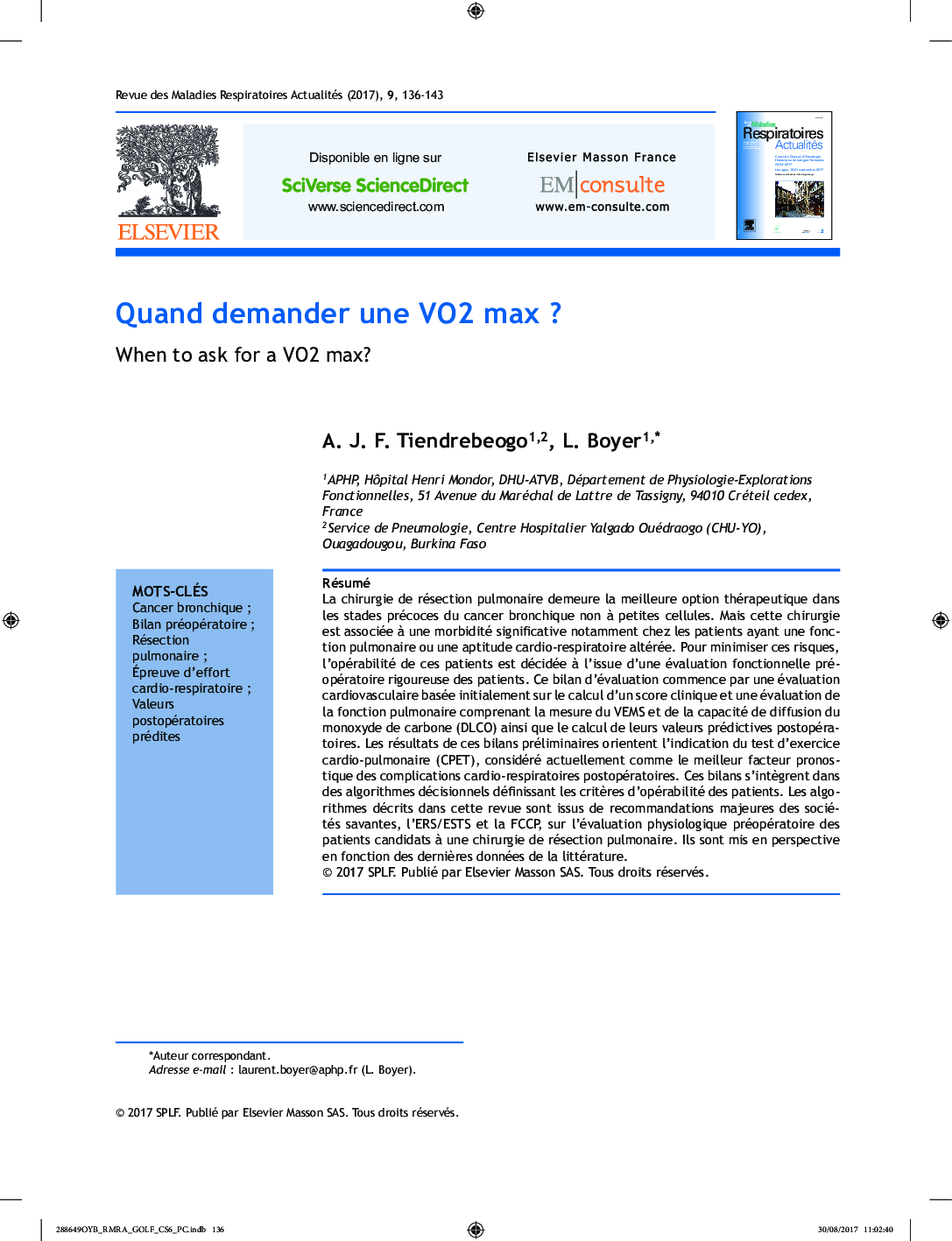| Article ID | Journal | Published Year | Pages | File Type |
|---|---|---|---|---|
| 8820623 | Revue des Maladies Respiratoires Actualités | 2017 | 8 Pages |
Abstract
Surgical resection remains the best therapeutic option in the early stages of non-small cell lung cancer. However, this surgery is associated with significant morbidity, particularly in patients with impaired lung function or cardiorespiratory fitness. To minimize these risks, the operability of these patients is decided after a rigorous preoperative functional assessment of the patients. This assessment begins with a cardiovascular assessment then an evaluation of the pulmonary function including FEV 1 and carbon monoxide diffusion capacity (DLCO) measurement, and their preoperative postoperative values. The results of these preliminary assessments guide indication of the cardiopulmonary exercise test (CPET), currently considered as the best prognostic factor for postoperative cardiorespiratory complications. These balances are integrated into decision algorithms defining the operability criteria of patients. The algorithms described in this review are the result of major recommendations of the learned societies, the ERS / ESTS and the PCCF, on the preoperative physiological evaluation of the patient with lung cancer being considered for resectional surgery. They are put into perspective according to the latest data from the literature.
Keywords
Related Topics
Health Sciences
Medicine and Dentistry
Pulmonary and Respiratory Medicine
Authors
A.J.F. Tiendrebeogo, L. Boyer,
